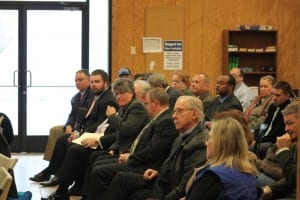
by Nick Hahn
The ongoing dispute over the number of racing days and the format of Colonial Downs’s 2014 meet continued to bedevil the Virginia Racing Commission yesterday. Amid yet other winter storm in central Virginia, the Commission was physically two members short of a quorum to take any action, with D.G. Van Clief, Jr. and Carol Dawson connected via conference call.
As it turned out, the two sides — Colonial Downs and the Virginia Horsemen’s Benevolent and Protective Association (HBPA), representing the state’s horsemen — remained far enough apart that there wasn’t much the Commission could have done in any case. In their most recent proposals, the track called for a six-day meet, while the horsemen sought 32 days over eight weeks.
The sides reportedly had been closing in on a resolution with a seven-week, 28-day meet proposal during a conference on February 14, only to have that proposal thwarted over which side of the ledger some $150,000 to $300,000 in operational expenses fell.
In a mediation session last week, the sides emerged even farther apart.
Colonial ran a five-week, 25-day meet in 2013, its shortest in both live days and weeks in several years.
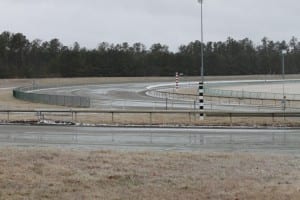
At its December meeting, with Colonial requesting just 12 days on the one hand and the horsemen countering with 32 on the other, the Commission had imposed a five-week, 25 day meeting, a status quo compromise in the same format as the 2013 summer meet.
But Virginia horsemen consider their agreement to the 2013 format as one-year sacrifice, not a basis for future planning. During Monday’s meeting VHBPA Executive Director Frank Petramalo referred to the December Commission action as essentially a “curse on both houses” for their inability to reach an agreement to present ot he Commission.
Colonial was willing to move forward with the commission’s compromise although it differed from the 12-day meeting proposal they brought to the table. They have portrayed the horsemen’s refusal to do so as “a boycott” of the Commission’s action.
On Monday, over the speaker phone, Van Clief offered a proposal that might take both parties from the ledge, suggesting a seven week, 21 day meet.
[author] [author_image timthumb=’on’]http://www.theracingbiz.com/wp-content/uploads/2013/12/nickhahn.jpg[/author_image] [author_info]Nick Hahn has been covering Virginia racing since before there was a racetrack. His “Off to the Races” radio show is a must-listen, and his “Nick’s Picks” tip sheet is a shortcut to wagering profits at Colonial Downs.[/author_info] [/author]
But post-break comments suggested the proposal didn’t go far.
“Colonial doesn’t want to make a deal. It makes no economic sense because we’re both suffering,” said the VHBPA’s Petramalo.
What’s more, an irritated Petramalo referred to Colonial’s reported efforts to organize a dissident horsemen’s group as akin to management’s establishment of “in-house unions.”
“There have been dustups, but we’ve able to work through dustups before. For the first time in 18 years, the system shut down,” countered attorney Jim Weinberg, representing Colonial Downs.
Further darkening the picture, Weinberg added that dispute, which has shuttered half of Colonial’s off-track wagering network and severely limited wagering in those facilities remaining open, has cost the company $1 million — money he suggested needed to be accounted for in future discussions.
[pullquote]“There have been dustups, but we’ve able to work through dustups before. For the first time in 18 years, the system shut down.” — Attorney Jim Weinberg[/pullquote]
This estimated shortfall has been caused by the lack of a horsemen’s contract that forced wagering on Thoroughbreds to cease at Colonial’s OTBs.
The two sides appear to be inching closer to the ledge. Once believed to be perhaps as little as $150,000 apart on the expenses and schedule for the upcoming summer meet, the cost of the stalemate now may have $1 million added to it.
Several horsemen ventured down I-64 for the meeting, held in the horsemen’s building located at the end of the first turn of Colonial ice-covered turf course, still scheduled to be burned during the first week of April, an annual event.
Ferris Allen, Colonial’s all-time leading trainer, was one of many horsemen who spoke. Colonial has suggested that its short-meet proposals would enable them to run a boutique meet similar to those at Keeneland and Saratoga.
Allen countered that in Virginia, “We are running a boutique meet.” But he likened Colonial more to Timonium and Atlantic City — two short, workingman’s meets — rather than the more rarefied company Colonial envisions.
Trainer Lilith Boucher disputed Colonial’s suggestion that many fewer, high-dollar races would boost wagering. Boucher lays up horses in Virginia between foaling in South Carolina and Pennsylvania.
She said she finds value in maiden and claiming races and suggested that racing do more to counter “the misperception that low end racing isn’t high quality racing. In many cases the low end horses are more sound.”
Gillian Gordon Moore worried that the abrupt change to six- or 12-day meet would harm Virginia’s breeders, who are in the height of foaling season.
“We’ve got good land, space and a built-in horse community,” noted Moore. “There isn’t a better place to raise a horse.”
“There is now an unfortunate distrust between the groups. There needs to be more transparency to handle this distrust,” observed Debbie Easter, the executive director of the Virginia Thoroughbred Association.
[pullquote]There is now an unfortunate distrust between the groups. There needs to be more transparency to handle this distrust.” — Debbie Easter of the VTA[/pullquote]
The Virginia horsemen now want to see Colonial’s data on operational expenses, and the Commission apparently may have a look as well.
“I would like to see the track’s financials as well,” added Commission Chairman J. Sargeant Reynolds.
“Do not underestimate the difficulty if we go dark any longer,” added Van Clief over the speaker nearing the conclusion of the forum.
A warning directed towards the future with implications today.
The next commission meeting has been scheduled for Thursday, March 27th. It appears that a Valentine’s Day meeting that didn’t have enough heart led to a St. Patrick’s Day meeting that had no luck.
Fortunately — perhaps — Easter is just around the corner.


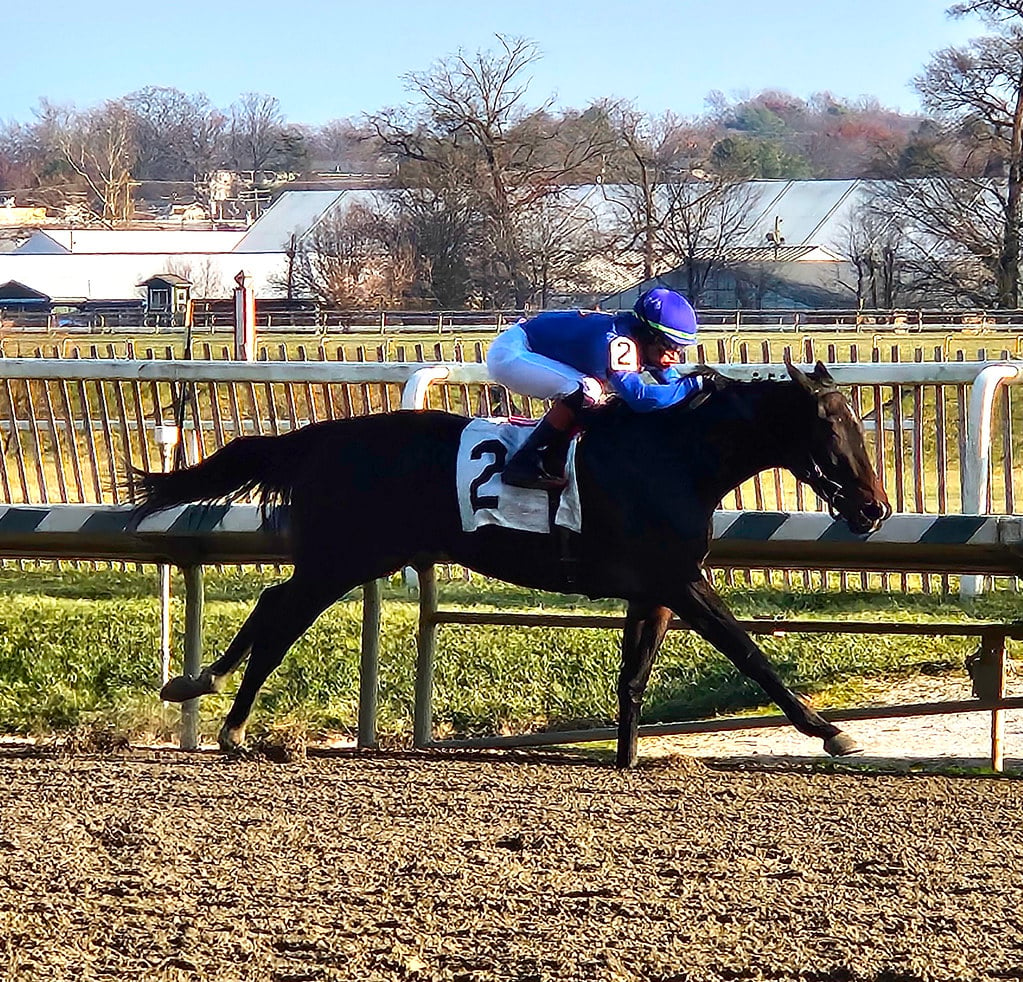
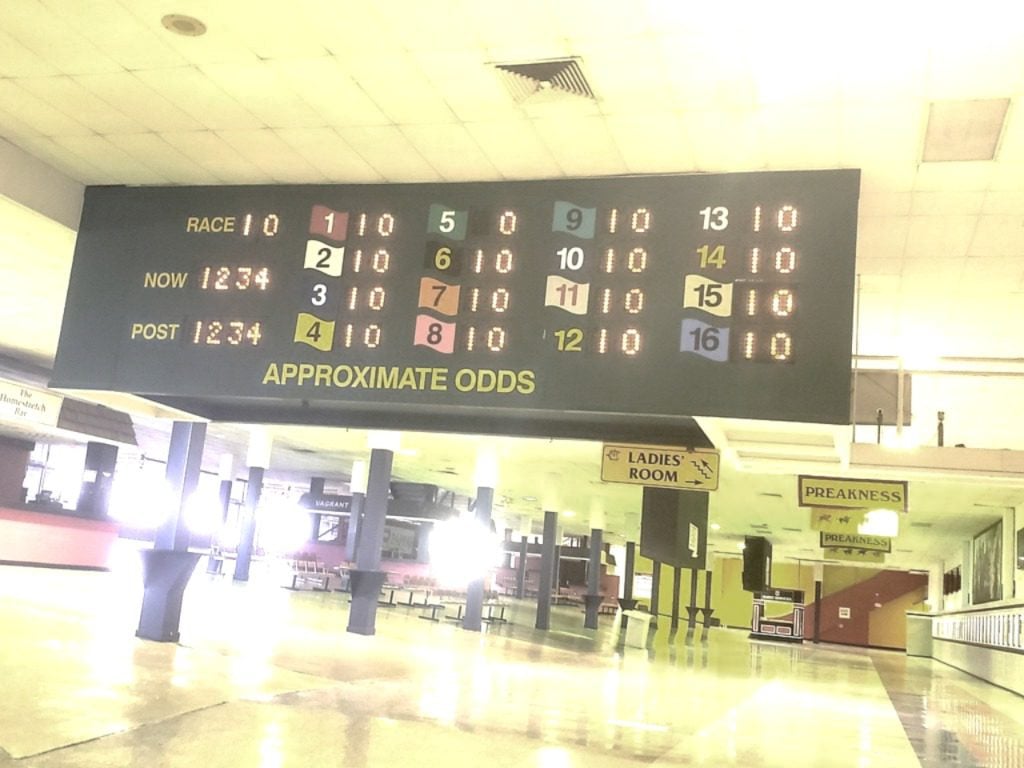

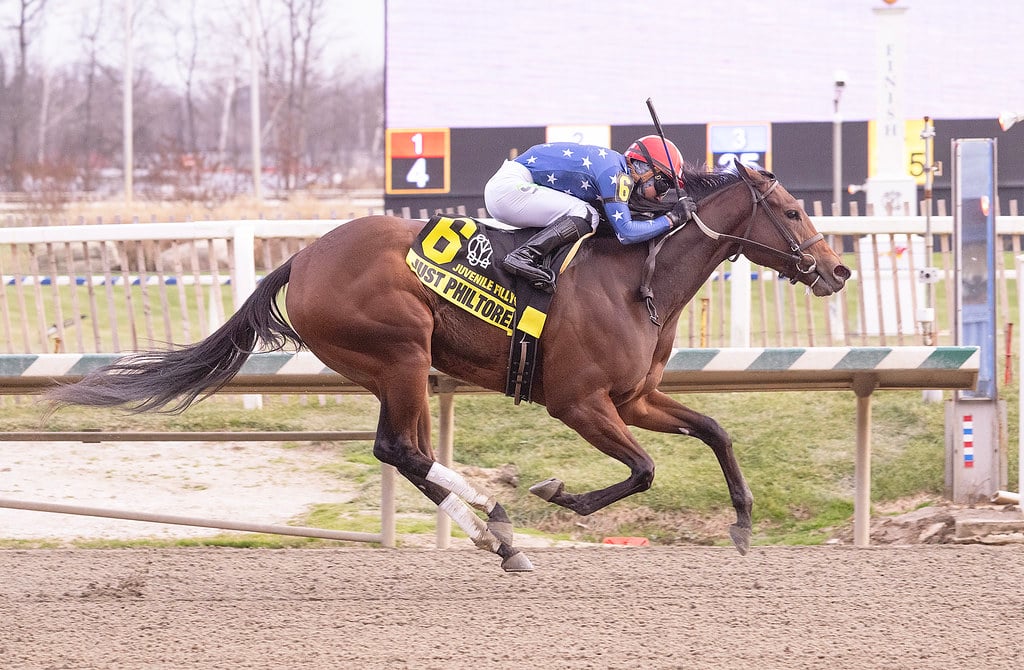
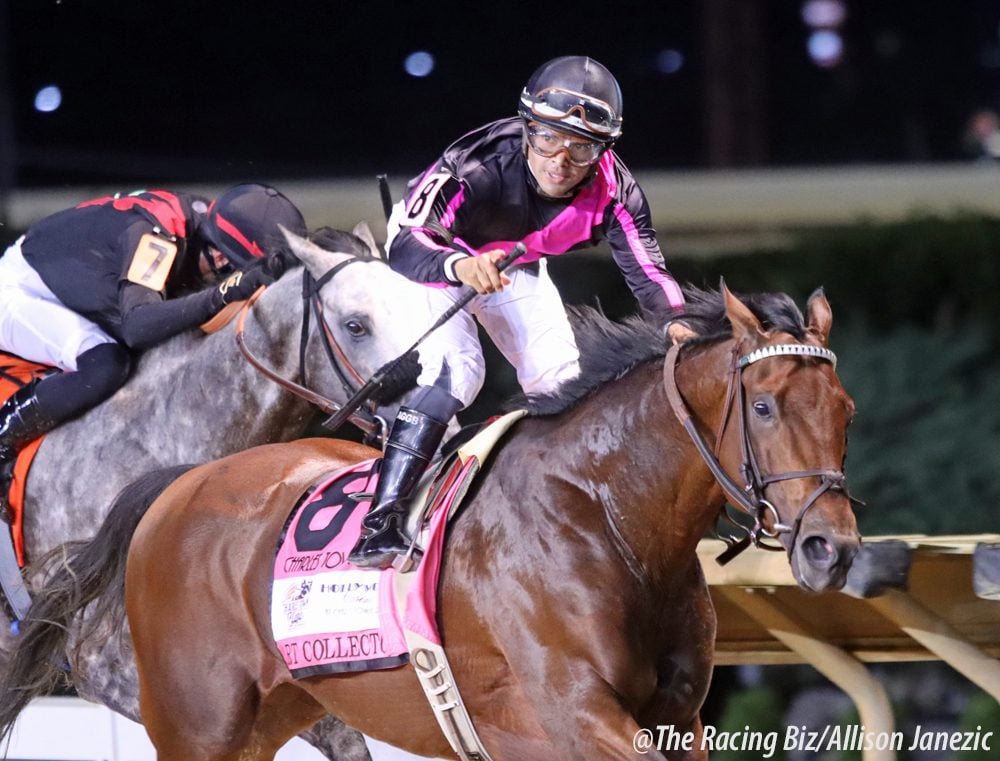
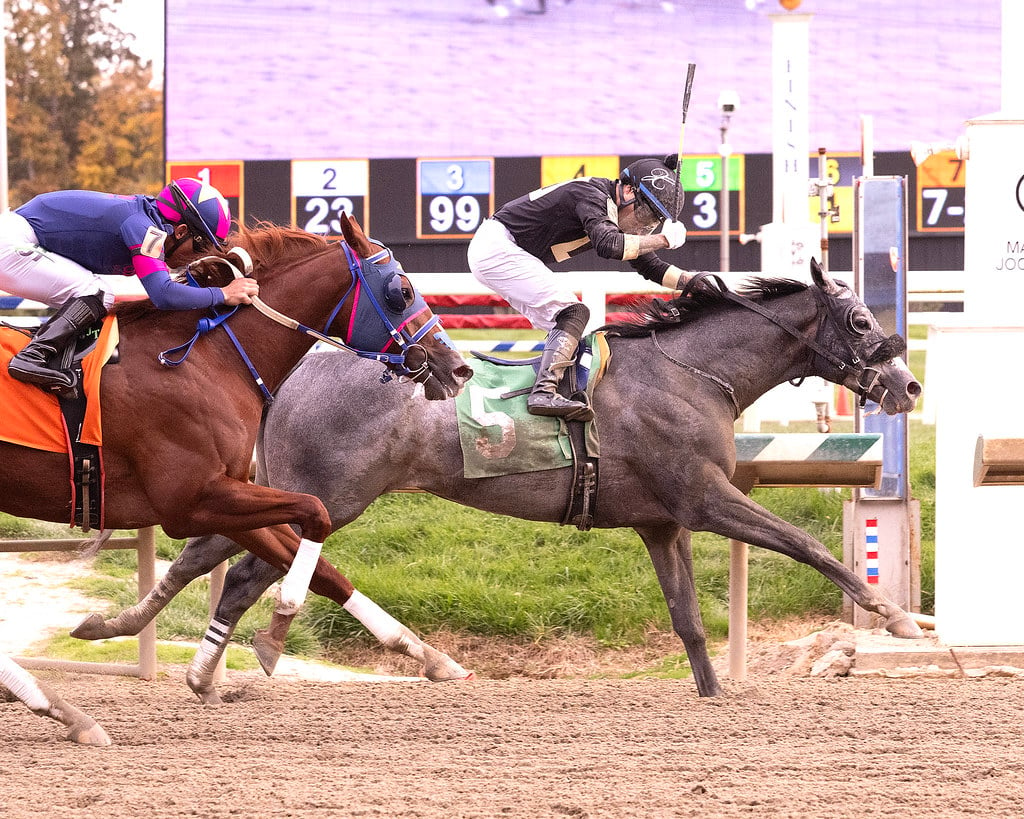
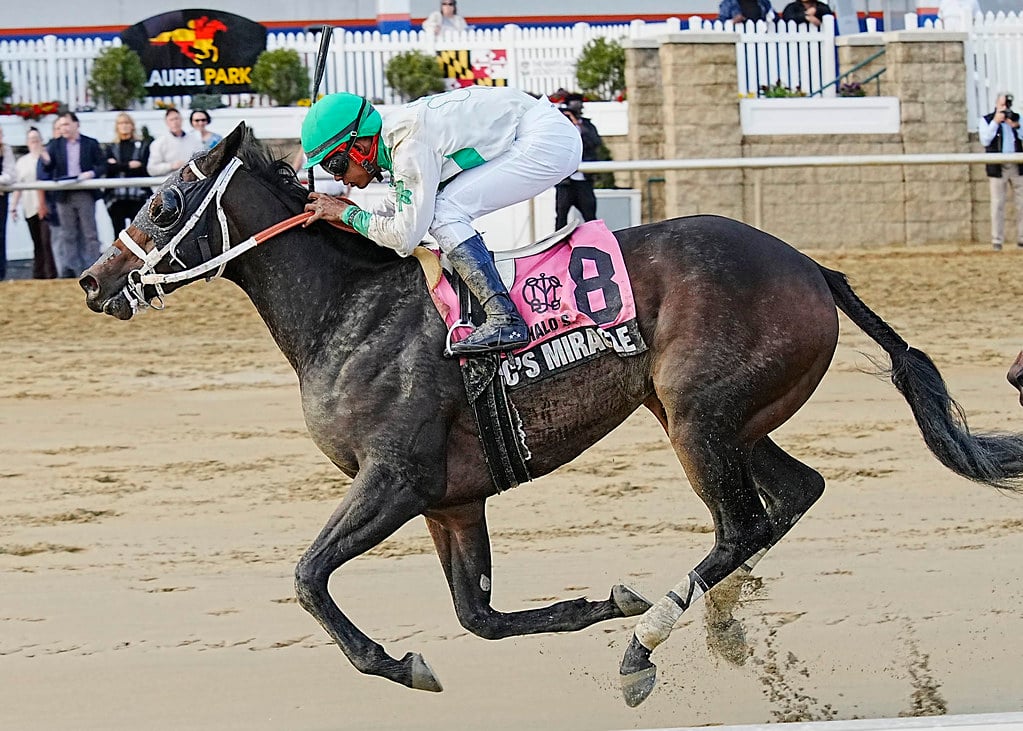
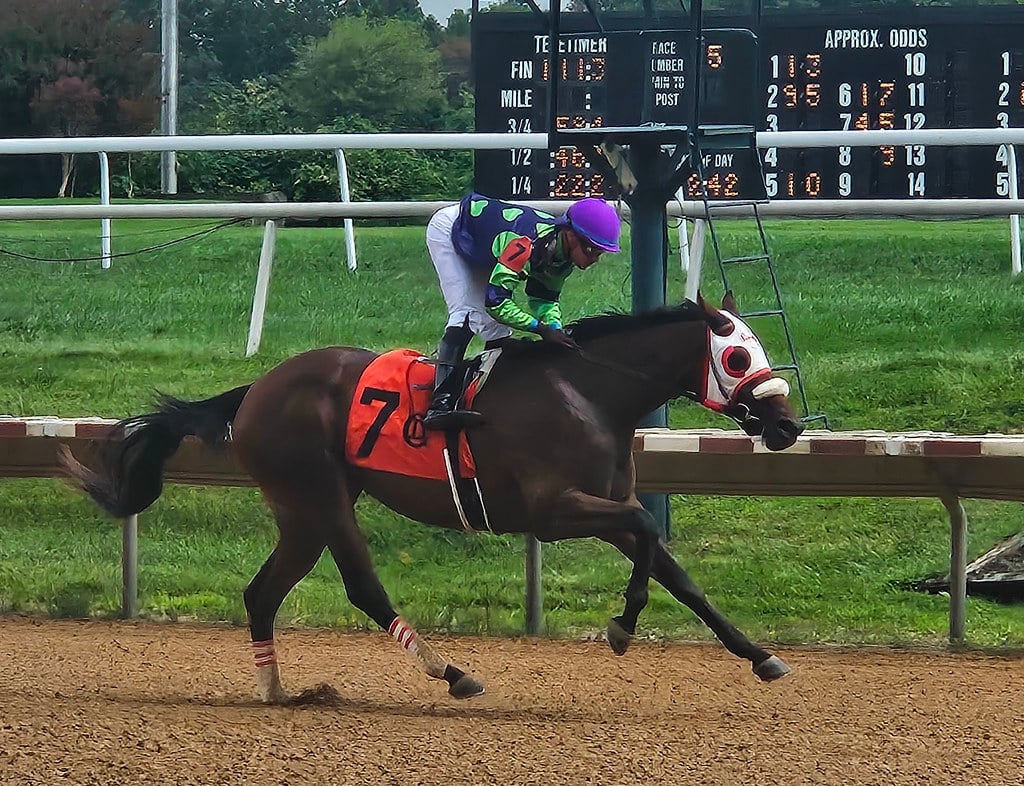

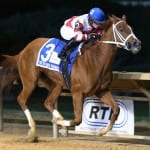
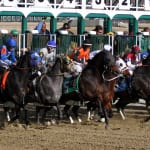
Virginia Horseman
18th Mar 2014This problem cries out for a political solution. Legislation in the General Assembly stripping Jacobs Entertainment’s right to run ADW in the Commonwealth is a much-discussed solution. The company has been trying to sell Colonial Downs for years without success, and the government can push them out of the picture with proactive legislation. This would allow another track operator who actually wants to conduct live racing to come in and replace the current ownership. Perhaps Jacobs could be compelled to spin off CD, put it into bankruptcy, and a non-profit organization of the type like the Keeneland Association could fill the breach.
A Disrespected Fan
21st Mar 2014Special thanks to Nick Hahn for his excellent reporting on Mid-Atlantic racing, spefically the Colonial Downs dispute! If it were not for him, racing fans throughout the Commonwealth would be left in the dark.
D-Day is approaching my friends. By next week Thursday, we all will know if horse racing is still a viable entity or just a distant memory. It is now time for both sides to swallow their petty differences and show some respect for the fans, employees and customers who have suffered due to this lack of resolve. We all know this is the last opportunity for a settlement or horse racing will bite the dust in Virginia. It is crunch time and time for both sides to step up and reach a settlement!
hb compton
18th Mar 2014Hey Virginia horsemen, just wanted to let you know I just made my derby weekend reservations at Charlestown. I am so happy that not one penny I wager all weekend will go to you dimwits!!!
james mcintyre
18th Mar 2014Exactly, as a North Carolina resident the Martinsville location was so convenient. Now my plan will be to go an extra 3 hours and spend my $ in WVA
Pamela
23rd Mar 2014I am a North Carolina resident as well and Martinsville’s OTB was convenient. Its sad racing havent developed at all in NC, and even more sad that these people take patrons for granted in VA. Unbelievable!
A Disprespected Fan
18th Mar 2014As the Virginia Horseman stated, this problem does cry out for a political solution, but I just don’t see that happening. When you hear statements from Colonial Downs executives such as they want to shorten the live racing meet to improve the quality of racing, they must think we are all stupid. The words quality racing are not in the vocabulary of the current ownership of Colonial Downs. CD is screaming for new ownership and leadership. Perhaps we can all issue an impassioned plea to Jim Justice, the owner of Greenbrier, Glade Spring Resort and Wintergreen, to purchase Colonial Downs and bring it back to respectability.
LindaVA
19th Mar 2014I agree with the previous comments. It’s been obvious for years that the current management would be more than happy to see racing in Virginia disappear from the landscape. We need new owners who actually want to see the track succeed, for the benefit of the horsemen and the fans.
VirginiaBredOwner
20th Mar 2014The root problems are the current Colonial Down location is not located in an area with enough clientele and the legislature does not support either the track or the horsemen.
The Biz
20th Mar 2014Thanks, everyone, for weighing in. Thorny issues, and I’m fearful time’s running out to save this meet. Seems like the above comments point to a key problem: on the one hand, “This problem cries out for a political solution,” as one commenter said. On the other, ” the legislature does not support either the track or the horsemen,” as another observed…